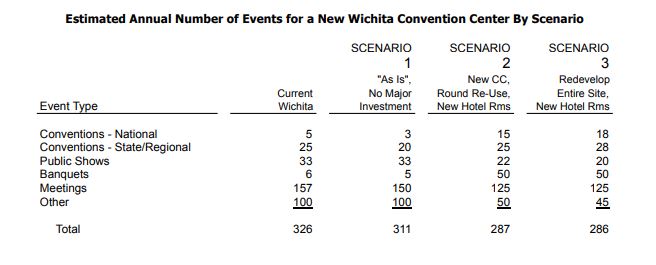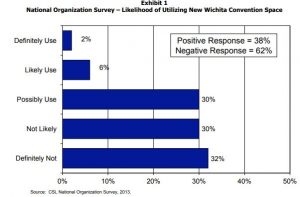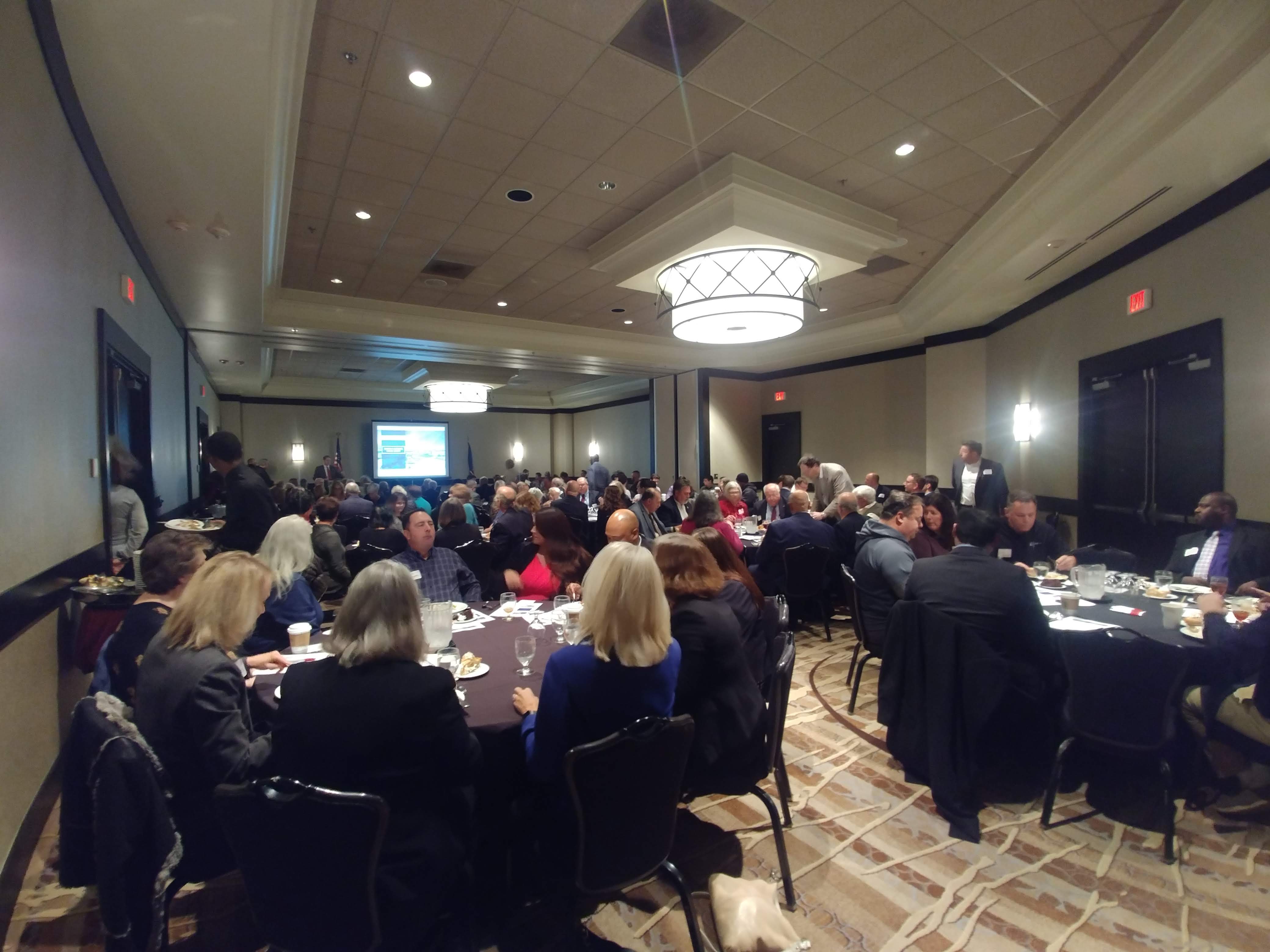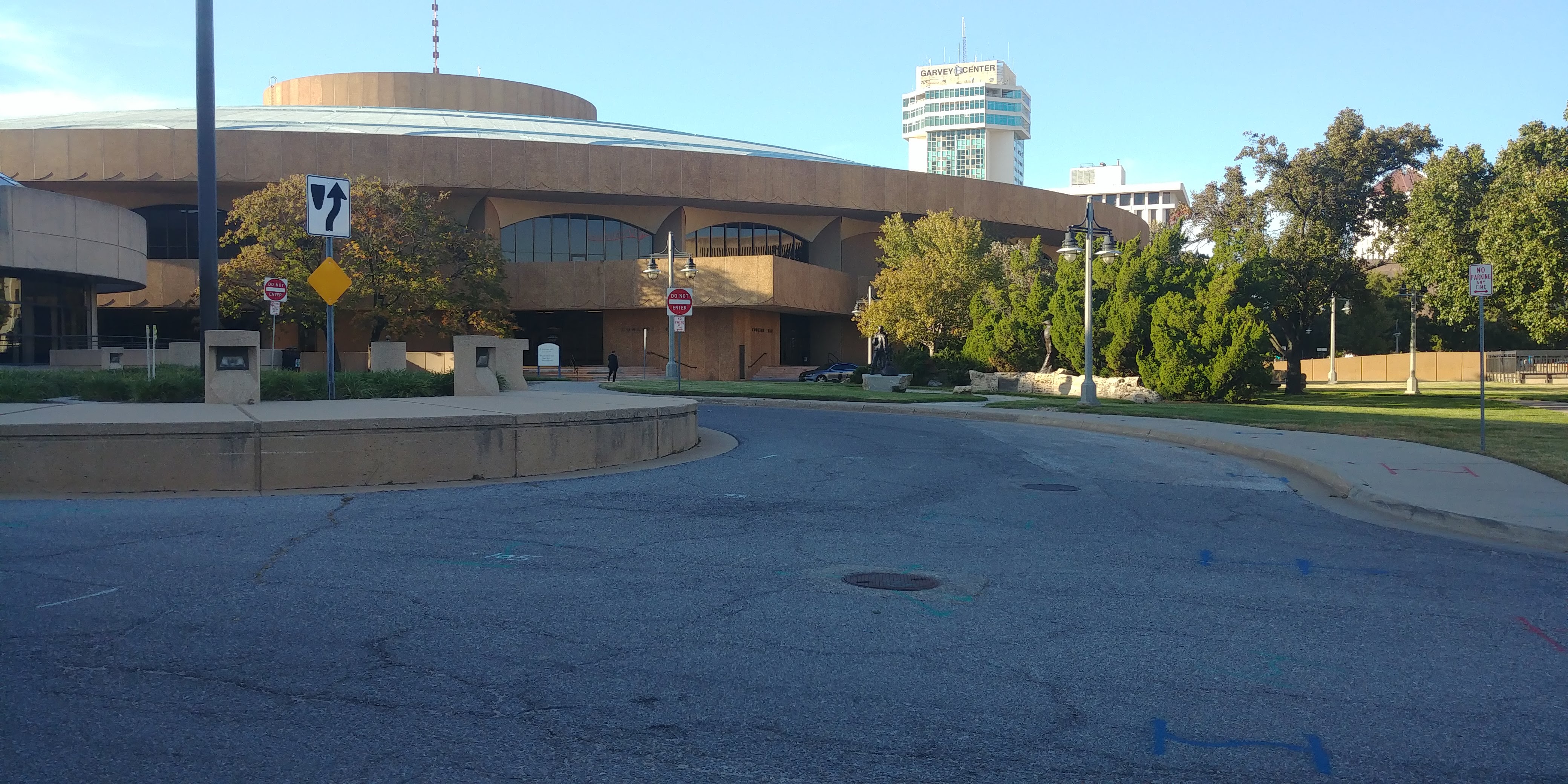Downtown boosters want a new and much larger convention center as the centerpiece of the Wichita Riverfront Legacy Masterplan, but at least one expert says space is already overbuilt across the country, and even prime destinations are effectively giving it away rent-free.
The argument that convention center space drives tourism is a favorite of city officials nationwide. However, the convention center market space is a saturated market and cities across the country are in a bind to bring in convention business, according to Heywood Sanders, a professor at the University of Texas at San Antonio and the author of Convention Center Follies: Politics, Power, and Public Investment in American Cities. In a phone interview with The Sentinel, Sanders spoke about the measures that destination cities are willing to take to get convention business.
“Wichita’s case is remarkably parallel to the case from one end of the country to another in that it has very little to do with the realities of the convention center market,” says Sanders.
Sanders named examples of incentive plans and conference discounts in Chicago, San Francisco, Atlanta, and even more locations in order to draw conferences. For example, the Los Angeles Convention Center, located in one of the most visited cities in the United States, routinely discounts convention businesses to keep and attract business. Sanders noted that the famed E3 Expo in Los Angeles had the $1.1 million published rate to hold the convention discounted to just $1,000. The Anime Expo with 2018 attendance of 110,000 people likewise had a $450,000 convention rental rate slashed to $1,000.
“In order to get conventions to go to Los Angeles, they literally have to give the convention center away,” says Sanders.
Sanders made clear that Wichita is not competing with locations like Los Angeles or even Chicago, but he is suggesting that it is part of the dynamic in the overall industry.
“What’s the dynamic in which prime destinations are discounting their space or in many cases giving it away for free for a minimum rent? The answer is it’s an overbuilt buyers-market.”
In terms of regional competition, Wichita is entering a market that is only getting more competitive. Oklahoma City is in the middle of building a new convention center under the guidance of Populous, the same architecture and design firm handling Wichita’s design phase.
“Wichita is competing with convention centers across Kansas, and Missouri and the Midwest, and that means to some extent Wichita has to compete with the convention center in Overland Park, Kansas. It has to compete in Kansas City, Missouri, where the public is subsidizing a brand new Loews hotel.”
Susie Santo, president, and CEO with Visit Wichita says past studies that looked into convention center business validate growth models.
“We learned that it would be an economic driver in the community if we had industry-standard facilities.”
A study done in 2013 looked at three scenarios regarding the convention center. One was to leave it as is, the second was developing just the convention center, the third scenario was to redevelop the entire area. The Riverfront Legacy Masterplan is a fulfillment of scenario three, which somewhat unbelievably calls for more than a tripling of national conventions.
Santo believes that there is growth potential for Wichita.
“It was really important when we did this study that this is not about ‘build it and they will come,’ this is about understanding the demand for our size of city.”
That study itself, however, undermined the growth potential, showing that most national organizations had a negative response about possibly utilizing a new Wichita convention center. 62% said they were ‘not likely’ or would ‘definitely not’ come to Wichita and only 8% said they would ‘definitely’ or ‘likely’ use a new facility. 30% said they would ‘possibly use’ it but the study authors said that only is considered ‘tentative’ interest.

The study also examined meeting planners’ perception of Wichita to understand why they would either ‘not likely’ or ‘definitely not’ come even if the new facility met their needs. Specific responses included:
- Difficult to get to from several major cities around the country, lack of amenities, lack of reputation and excitement. Our attendees prefer first-tier cities.
- We work with Kansas City and Overland Park. They are profitable destinations for our event, so we would not look to add another market so geographically close.
- Just too small and difficult to get to.
- There are a limited number of direct flights.
- It’s just not a destination our clients are interested in.
Sanders has heard the economic development for years and given the convention space saturation does not believe that
“The argument invariably is that this will produce great economic benefit in the community, but my conclusion is that these projects are driven by the local business community and leadership.”
Sanders only has to point to Wichita’s purchase of the Hyatt many years ago.
“It’s always amused me that Wichita of all places given the state and communities political character and complexion was one of those cities that decided it was imperative that the local public sector get into the hotel business.” Sander continued, “The argument at the time was that you needed a nice busy Hyatt to make the convention center work, so you know the beat goes on.”




